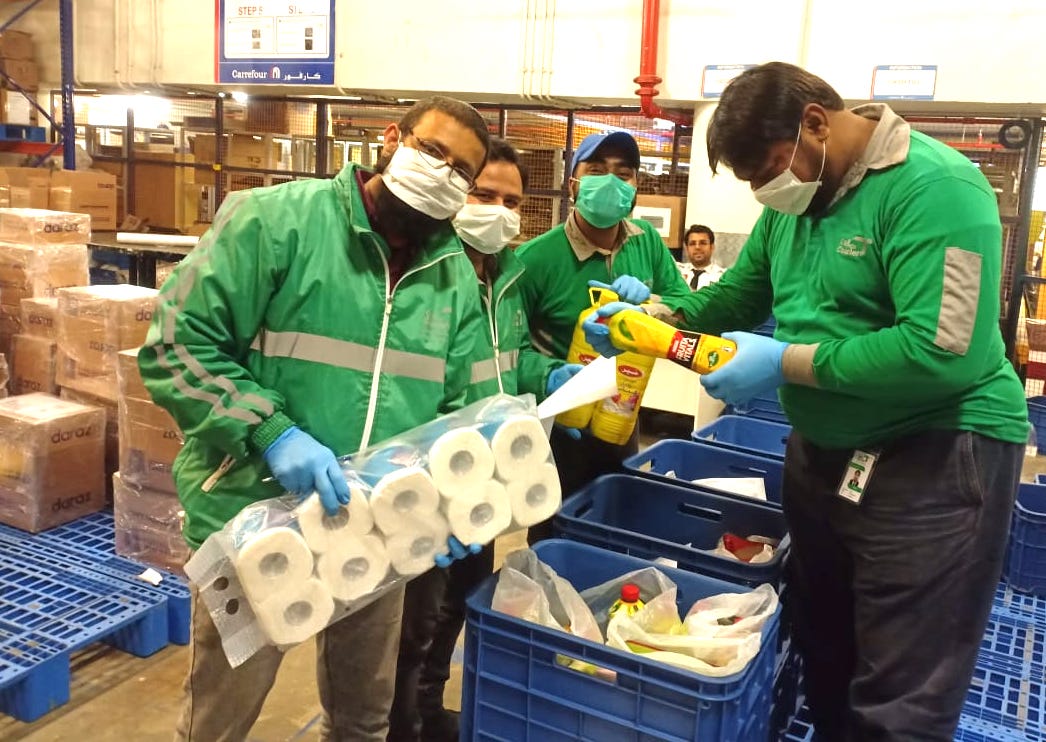LAHORE – As reported by the Pakistan Telecommunications Authority (PTA), internet consumption in Pakistan has increased by 15 percent since the last week as the fight against the coronavirus continues. It is safe to assume that this sizeable increase is largely due to a considerable amount of people across the Country working from home to help reduce the spread of this virus, following the advice from public health authorities.
As the situation gets more alarming day by day, safety and survival have become a primary concern for a vast majority of the population in Pakistan. This is also evident from the fact that since the outbreak was reported, people started stockpiling items of daily use in a fear that if the situation escalates towards a lockdown scenario or even a curfew in its extreme form, then access to items of daily use might become challenging.
This is not unique to Pakistan during a crisis, the phenomenon of panic buying was observed in many countries around the world since the virus was declared by the World Health Organization (WHO) as a global pandemic, with pictures of empty store shelves, stretched customer queues at hypermarkets and stories about the shortage of face masks, hand sanitizers, hygiene, and sanitisation products went viral on social media.
In Pakistan, the Sindh government was first to declare a complete lockdown in the province which was recently upgraded to a strict curfew, restricting all forms of public transportation except the most essential ones recognized as exceptions in their official notification. Punjab, KPK and Baluchistan governments soon followed through, however, their current status is yet to be declared as a strict curfew.
In this situation, the public at large is most concerned about surviving through this difficult time while being isolated in their homes. A convenient e-commerce delivery system ensuring the safe and hygienic supply of food products and basic items of daily use at the customer’s doorstep can be the most ideal solution during this crisis, helping to reduce all forms of non-essential outside travel and averting any form of public panic or outcry. Unfortunately, supply chain logistics required to operate such an e-commerce delivery system for retail products has not yet been recognized under exceptions by the Sindh government and concern persists that other provinces might also plan accordingly, in case a strict curfew is declared by them too.

Carrefour, operated in Pakistan by Majid Al Futtaim, recently introduced a mobile app to better serve its Pakistani customers. The new app brought shoppers across Lahore and Karachi a simple, digitised, and convenient mobile experience to shop for more than 5000 products offered through the newly launched Carrefour delivery app from the comfort of their homes. Since the outbreak of COVID-19 in Pakistan, online orders received through this app spiked sharply with a 70% increase per week, which reflected a major change in shopper preferences whereby a large number of customers preferred to use such a service to avoid the risk of stepping out of their homes.
Carrefour’s delivery team considered all precautions while delivering online orders such as wearing face masks, disposable gloves, disinfecting their clothes and vehicles after every order delivery, to protect themselves and the customers from spreading this virus. However, most recently the service had to be suspended in Karachi due to the imposition of curfew and because the delivery vehicles were not allowed to commute within the city by local law enforcement agencies since they were not listed under exceptions in the lockdown notification circulated by Sindh Government’s home department.
Online shopping has evolved in Pakistan at a rapid pace but has become critically important during this ongoing crisis. It appears to be an effective weapon to fight against the spread of this virus by averting public panic related to access and shortage of food supplies and other items of daily use. Major multinational retailers such as Carrefour Pakistan, who enjoy a wide public trust in following strict safety, hygiene and quality control protocols of international standards, should be supported and encouraged by the Government in all possible ways to maintain an efficient and consistent supply of daily use items directly to the customer’s doorstep to help implement the social distancing policy as advised by public health authorities, ensuring that shoppers are served with essential items of daily use right at their doorstep without having to step outside of their homes.


















